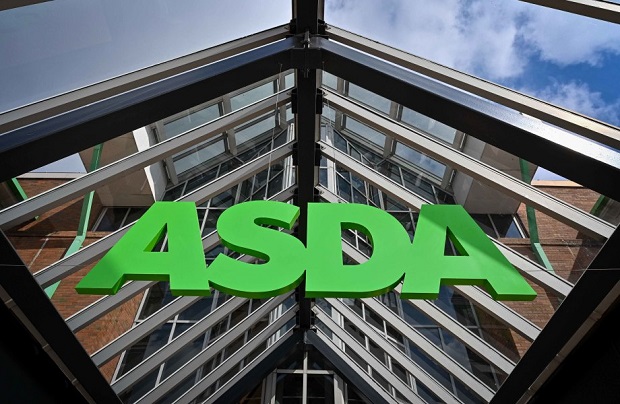- Average household disposable income rises by 15.7% year-on-year in April to £239 per week
- Deflation in energy prices was a key driver in the slowdown of inflation to its lowest rate in more than two years at 2.3%
- Average household disposable income is now just 2.7% below its pre-crisis peak of £246 in March 2021
 The latest figures from Asda’s Income Tracker reveal that financial pressures on UK families eased significantly in April, with disposable income for the average household reaching its highest level since September 2021
The latest figures from Asda’s Income Tracker reveal that financial pressures on UK families eased significantly in April, with disposable income for the average household reaching its highest level since September 2021
The amount average households were left with last month, after spending on bills and essentials, was £239 per week – £32.52 per week higher than April 2023.
The improved financial outlook saw the tracker reach its highest level in well over two years, with household disposable income now only 2.7% below its pre-crisis peak of £346 in March 2021.
A key driver behind the improvement in household spending power was a third consecutive month of significant deflation with annual inflation now standing at 2.3% – the lowest rate of inflation in more than two years.
The Ofgem price cap and deflation in energy prices were a key component in driving the marked slowdown of inflation in April, with deceleration in food and non-alcoholic beverages also contributing.
Additionally, lower-income households benefited from the recent uplift in the National Living Wage which took effect last month.
Although all households saw an increase in spending power in April compared to the previous year, many family budgets remain under pressure in real terms.
The lowest income households, comprising of 20% of all UK households, had negative disposable income last month. This means their take-home pay was insufficient to cover bills and essentials, with a monthly shortfall of £69.
Reacting to this month’s Income Tracker, Sam Miley, Managing Economist and Forecasting Lead at Cebr who produce that Income Tracker on behalf of Asda, said:
“The Income Tracker continues to improve, with discretionary income increasing to £239 per week. This improvement was driven by several factors, including still resilient earnings growth, the reduction in the Ofgem price cap, the uplift in the National Living Wage, and further cuts to National Insurance contribution rates.
“Cebr anticipates spending power to see further improvements in 2024, bolstered by the economic growth momentum that has pulled the UK out of the technical recession experienced in H2 2023.”
Despite the significant improvements for households in April, Asda recognises that many families are still feeling the strain of the cost of living and continues to support communities and its customers by launching new value propositions and investing to maintain its position as the UK’s lowest-priced traditional supermarket.
Earlier this month, Asda announced new price cuts on hundreds of products worth £70m, reducing prices by an average of 11%, as part of its focus on delivering uncompromising value for customers.
You can view the full report, here.




Comments are closed.